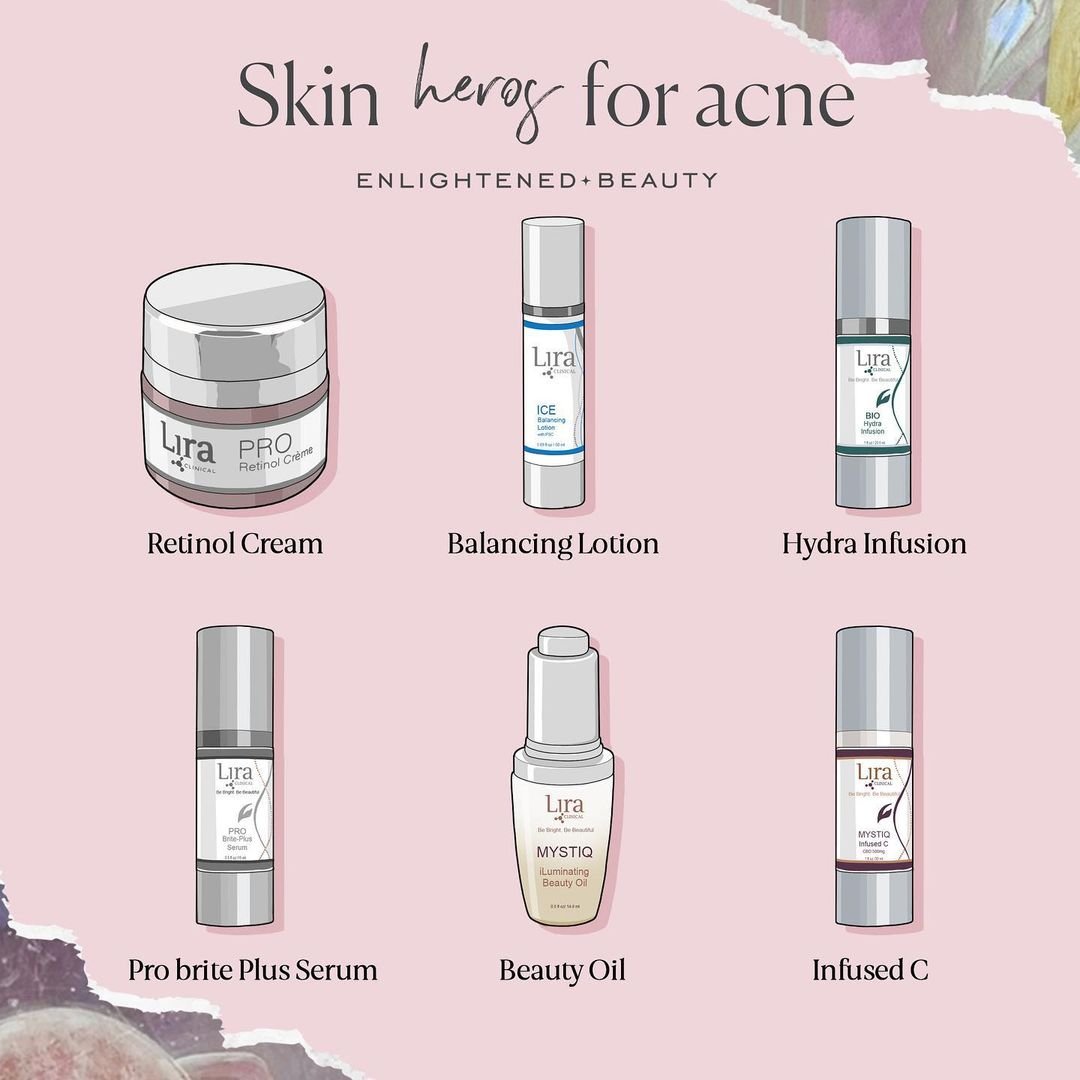
Can Hyaluronic Acid and Vitamin C Serums Work Together?
As we all know by now, not all skincare ingredients play well together. Sometimes it feels a bit like brewing a magic potion and hoping it doesn’t dissolve into a puff of purple smoke. With that in mind, today we’re going to take a closer look at two ingredients that not only play well together, but actually work better together.
So let’s not wait any longer and learn more about how to use Hyaluronic Acid and Vitamin C together.
Which came first, Vitamin C or Hyaluronic Acid?
Once you’ve found the best skincare ingredients for your skin, the next challenge is making sure you use them in the right order. People don’t often think too much about this, but it’s actually an important point to remember because applying skincare incorrectly can prevent you from achieving your desired skin goals. It’s generally accepted that when applying skincare products, focus on their consistency, from thinnest to thickest. Serum first, then oil, and finally moisturizer, no matter what ingredients are in the formula, the thing to pay attention to is the consistency.
This gives you peace of mind that you can use a formula with both ingredients or use them separately, as long as you use the thinner product first to reap the benefits.
Can Vitamin C Serum and Hyaluronic Acid be used together?
You actually can, and your skin will thank you! Both ingredients contain properties that target different areas of the skin and don’t compete with each other, keeping your skin healthy, happy, and radiant.
Vitamin C
This potent ingredient is known for being unstable when added to skincare. However, that has changed in recent years with the help of modern beauty science, making this skin darling more stable while still delivering impressive results. This means that the appearance of dark spots and hyperpigmentation caused by UV radiation and hormonal changes like pregnancy can be reduced. It restores radiance to the complexion, while the rich antioxidants in the formula fight free radicals that cause further damage to the skin on a daily basis. By increasing collagen production, Vitamin C also fights signs of premature aging like fine lines and wrinkles.
Hyaluronic Acid
This ingredient is your skin’s best friend, with an amazing ability to draw moisture around your face and lock it in place, keeping the skin plump and hydrated all day long. This is important for keeping your skin in its healthiest state, looking and feeling its best, while keeping the skin’s protective barrier fully functioning and able to protect itself from harmful free radicals such as UV rays, pollution, and other environmental aggressors.
As you can see, these ingredients work on different areas of the skin, complementing each other and working together to give your skin the best results.
What Not to Mix with Hyaluronic Acid?
Hyaluronic acid is a highly effective skin ingredient that delivers impressive and effective results when used alone or in combination with a variety of other skin ingredients. Hyaluronic acid occurs naturally in the body, so all skin types can benefit from its moisturizing properties. It hydrates while soothing any irritation or side effects that can occur when using other powerful ingredients like vitamin C and retinol.
Which is better, vitamin C or hyaluronic acid serum?
This question isn’t as easy to answer as you might think, as the two ingredients are different and have their own unique benefits. Both can deliver impressive results when used alone or in combination. If you’re considering which is better, both products are great for your skin! With so many different formulas, finding the best one to incorporate into your daily skincare routine will be easier than you think.
What should I apply after hyaluronic acid injections?
Since the hydrating properties of hyaluronic acid ensure that your skin is continuously hydrated, the use of other products depends on your own preferences. There is no right or wrong answer, but you will find that if you apply a moisturizer after a hyaluronic acid serum, the hyaluronic acid can do its job and fully hydrate the skin, while the moisturizer forms a physical barrier on the outer surface, providing the skin with a better chance of protecting itself from damage and exposure to free radicals and skin aggressors that come into contact with the skin every day.
Can I use a vitamin C serum on my eyes?
Some skincare enthusiasts even praise eye care formulas that contain vitamin C, regardless. This is mainly because of the help of this potent acid in fighting dark circles. Vitamin C can reverse the signs of skin pigmentation by preventing the skin from producing too much melanin, which causes dark circles under the eyes to darken over time. Vitamin C prevents this from happening and, thanks to the number of antioxidants, reduces further damage and pigmentation.
Do I need to apply a moisturizer after using a vitamin C serum?
Using a moisturizer after a vitamin C serum has the same benefits I mentioned earlier. The main difference is that vitamin C rarely causes skin irritation unless a person has built up a tolerance to the ingredient’s effects. Using a moisturizer can help soothe the skin and relieve signs of redness, irritation, or reaction. The ideal moisturizer formula contains a healthy dose of hyaluronic acid, giving you the best of both worlds.
Now you know a little more about how these two powerful ingredients can benefit your skin. If you have any questions, don’t forget to visit us on Instagram!


